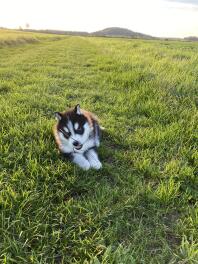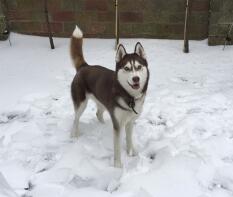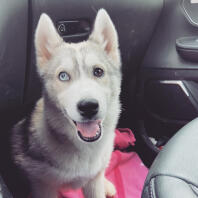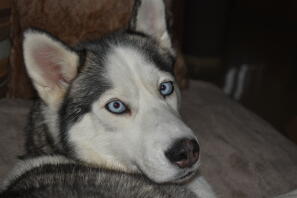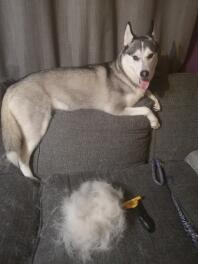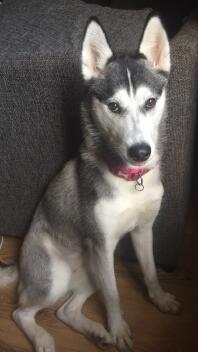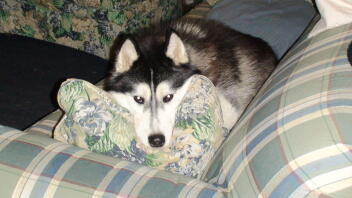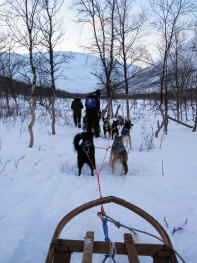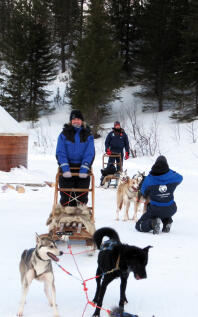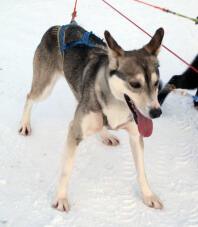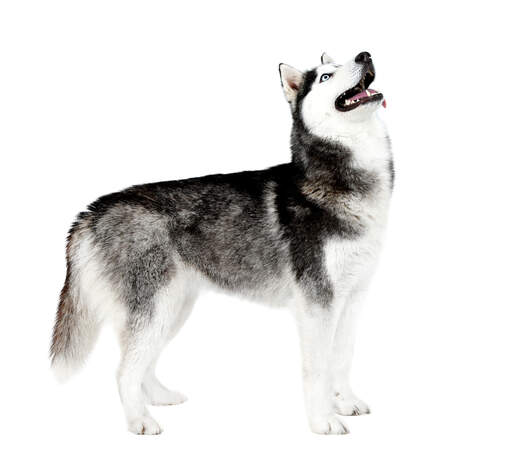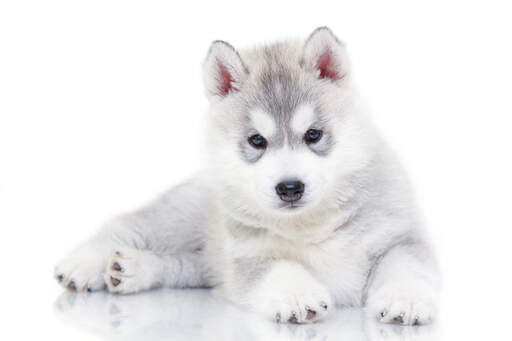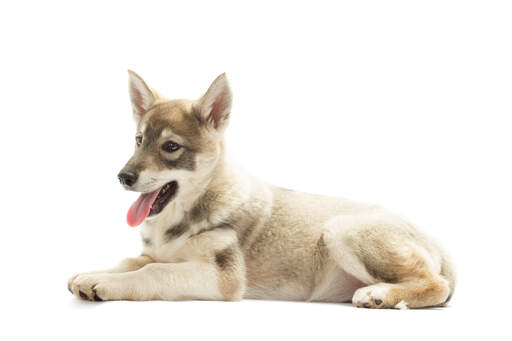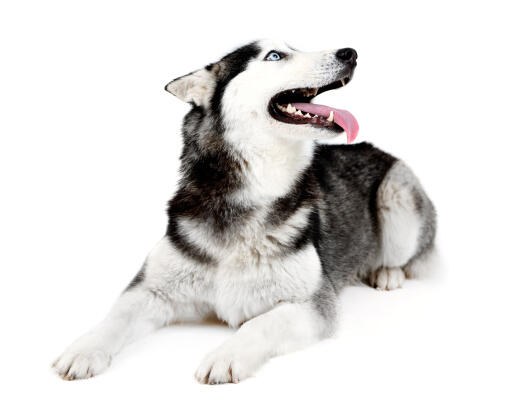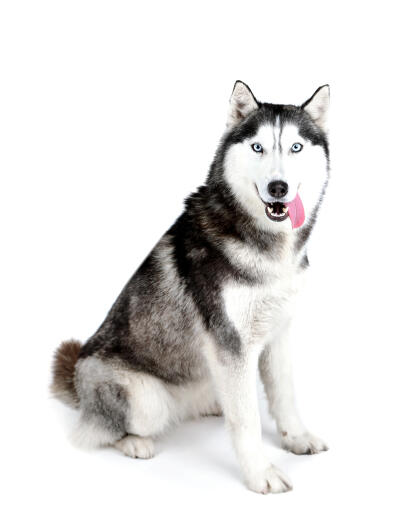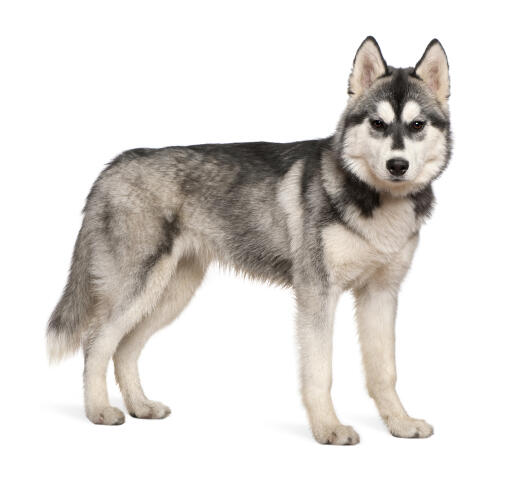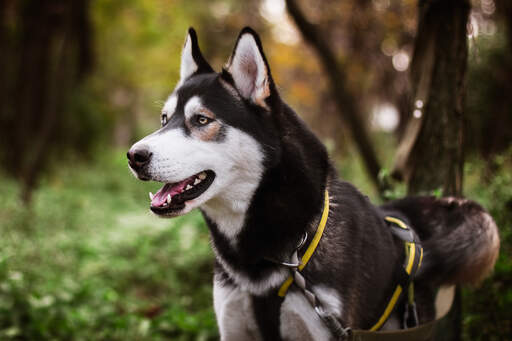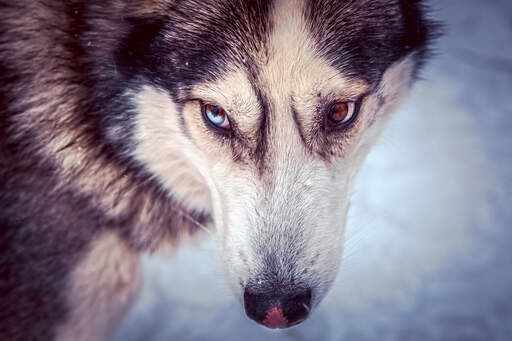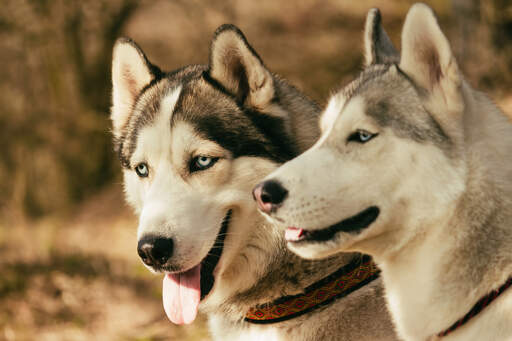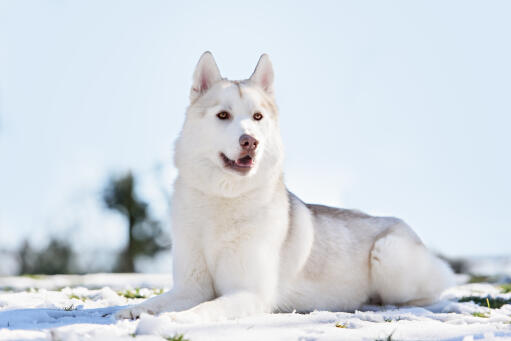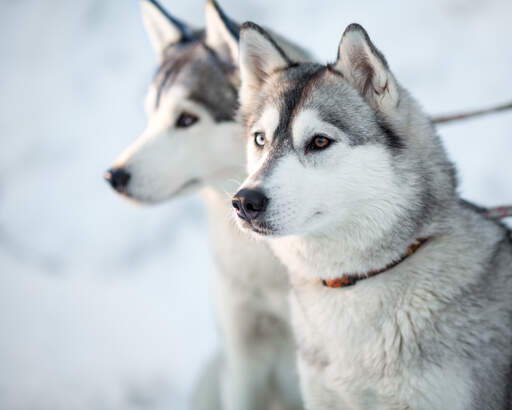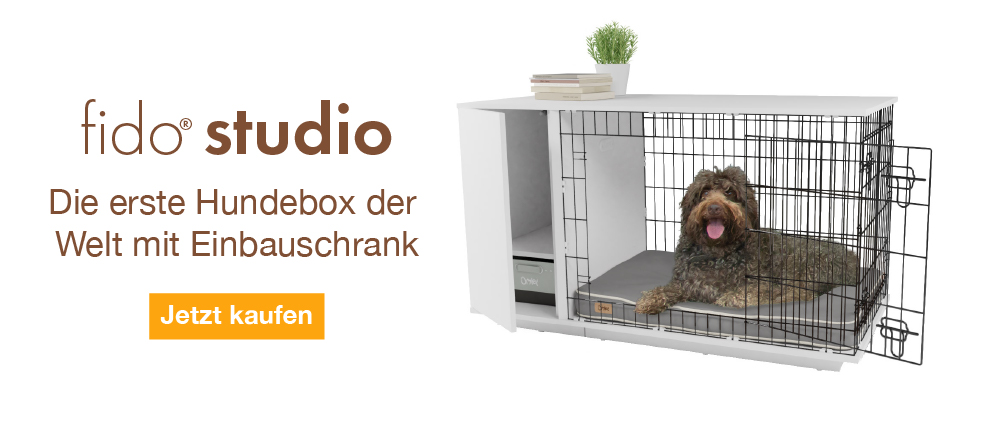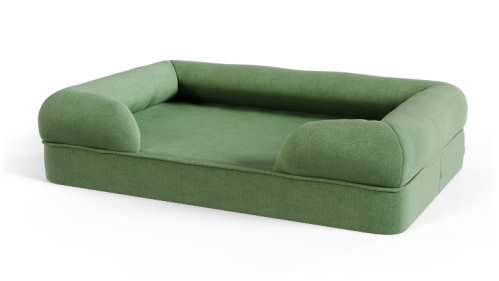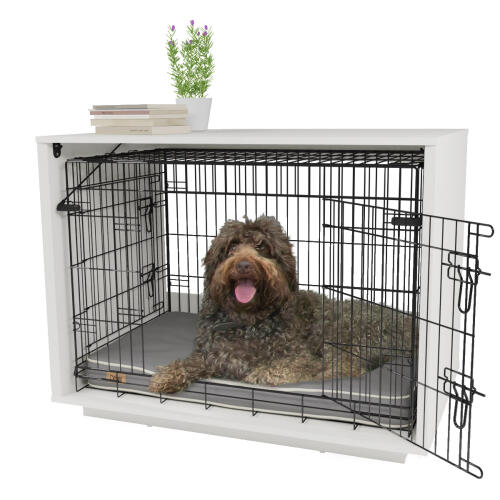Siberian Husky











Geschichte
The Siberian Husky originates from northeast Asia and is believed to have been developed by the Chukchi people. It was bred using Spitz stock and was used as a working dog, pulling sleds for the nomadic people who lived in arctic regions. The nickname Husky is believed to be a corruption of the name 'Eksy' which was used to describe Eskimos. It is one of the oldest breeds.
Verhalten
Huskies are alert, adventurous and gentle dogs. They are excellent with children and were bred to look after and protect them. They are generally good with strangers and rarely bark, but do have a tendency to howl at times. They are quite stubborn and training needs to be firm but positive to get the best out of the breed. A ten minute training session every day will help keep the dog in check as they like to push boundaries and will cause havoc if not properly trained. They learn quite quickly and like to please you, they are a working dog and need a purpose. Having been bred as a sled dog, they love running and are tireless; they can run for hours and are always ready for more. They will run away, are hopeless at recall and need to be walked in a very secure area to prevent escapees. Recall training is one of the hardest challenges with Huskies and many owners keep them on a long lead at all times. Having been bred to pull, this makes walking to heel tricky, too.
They are very sociable dogs and love the company of other dogs, especially in the home. They can sometimes show aggression to strange dogs, but proper socialisation at an early age should prevent this. They like to play and are best kept with another dog or have regular 'friends' that they can play with. They have a need to be part of a 'pack', but this can include their human family. They are renowned for chasing cats! They will want affection from you and will gladly sit on your lap for a cuddle. Left alone for too long, Huskies can be very destructive. Huskies need a fair amount of exercise, more so than other dogs, but not hours and hours. As long as they are given the chance to get outside and explore they will be happy.
They are a healthy breed and rarely show signs of illness. Sometimes cataracts are seen, but rare. Canine Hip Dysplasia is also possible with these larger breeds, but only occasionally in Huskies. With their dense fur, they need a fair amount of grooming; they will need brushing to prevent it ending up all over your home.
Charakter
Siberian Huskys have an athletic and adventurous temperaments. They could run all day given the chance and will not be happy dogs without sufficient daily exercise. An intelligent breed with a lot of self pride theu respond best to positive training methods and may throw a tantrum if they deem your methods too harsh. They get on fine with other dogs and love meeting new people but beware having them in the vicinity of small animals due to their high prey drive.
Gesundheitliche Probleme
Health problems that may affect Siberian Huskys includes progressive retinal atrophy (PRA: degeneration of the retina which can lead to blindness), cataracts, allergies, heart disease and epilepsy.
Einzelheiten zur Rasse
- Status: Common
- Lebenserwartung: 12 - 15 years
- Produktgewicht: 18 - 27 kg
- Höhe: 20 - 23"
- Selten: Nein
- Fell: Klein - Zweifach
- Pflegeanforderungen: Mehr als einmal pro Woche
- Stadt oder Land: Land
- Mindestanforderungen an Umgebung: Großes Haus
- Mindestanforderungen an Garten: Großer Garten
- Rassetyp: Arbeitshund
- Version: Größe L
- Energieniveau: Größe M
- Benötigte Bewegung: Mehr als zwei Stunden
Fotos der Rasse
